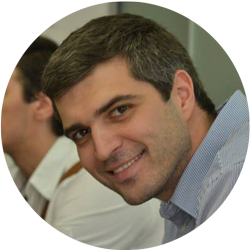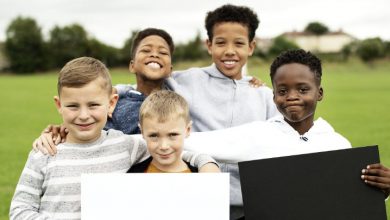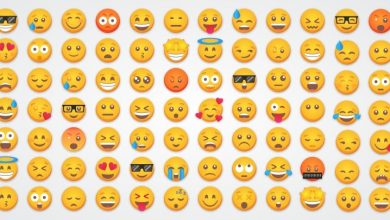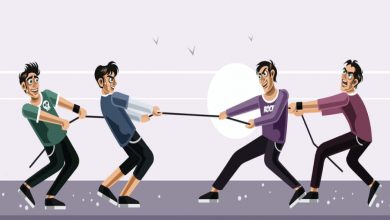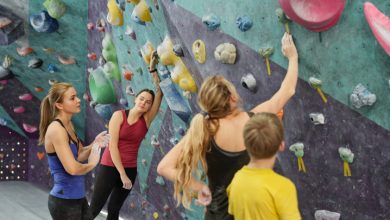
In this video, Yuval Noah Harari spoke with 350 young people in South London together with the comedian and presenter Russell Brand. In this first-ever Penguin Talk, Harari shared his thoughts on the future of humanity in an honest conversation with Brand and the young audience about the challenges facing the next generation (and how they might be overcome). He is stressing the importance of knowing yourself in times when humans will become hack-able animals with the help of Artificial Intelligence and Biometric Data. With the help of technology and biometric data, computers (algorithms) will be able to recognize and know humans better than they know themselves. With this perspective in mind, Harari argues, that millions of jobs will be lost and the education system is preparing young people for jobs that will no longer exist in the future. This video helps learners to broaden their perspectives and think critically about the digital era. The video makes us question our role in the future as educators and learners.
Harari starts the presentation with a statement that the most important thing to know about the future is that soon humans will be hack-able animals. What does it mean to hack a human being? It means an algorithm can understand you better than you understand yourself. Harari says that the algorithm does not need to know you perfectly. They just need to know you a little bit better than you know yourself, and often people don’t know much about themselves. Now, with the data those algorithms (YouTube, Amazon, Facebook, Instagram, and others) have about your preferences, about the music you listen to, videos you watch, etc. They will be able to start getting to know you better and better. This digitalization together with the advances of life-sciences (understanding emotions like biochemical algorithms) will make algorithms more powerful, because they are starting to recognize your emotions, heartbeat, adrenalin and hormone levels, on a certain stimulus (ex. An algorithm will start to understand what makes you cry, what makes you laugh, what makes you happy). So, the algorithm will have even more essential data to get to know you. One fear, Harari shares, is that these algorithms are going to be used by Corporations and Governments, to manipulate your desires and choices and to press your emotional buttons when in their interest.
What to do in this situation that fast enough is becoming a reality? Harari shares the oldest advice in the book: “Get to know yourself better”. He says “There is nothing new about the advice, but what is new is that now we have a competition.”
Another challenge with the technological advancements Harari speaks about is the replacement of many jobs with automation. A computer can do a much better job than a human where precision, logic, big data analyses are needed. Self-driving cars are already on the roads; in many factories, almost 90% of the production is automated. In medicine, the doctors will be replaced by robots, sooner than the nurses, because doctors need to precisely cut and sew, while nurses need to show compassion and empathy to the patients, which is still a human trait.
“The technological revolution is going to be a cascade of disruptions, not only a single event” – Harari says. “It is not going to be like the industrial revolution, where many jobs are lost (agriculture) and there is an emergence of new jobs (in factories) and after a while, everything settles to a new equilibrium. Because of technological advancements and machine learning we can experience disruption similar to the industrial revolution every 10 years”.
The key question remains : what kind of skills the children should learn in school, when we have no idea how the job market will look like 20 years from now? What we teach now in schools and universities most likely won’t be relevant for the future job market.
To stay relevant in such an unstable job market, we will have to continuously reinvent ourselves The main struggle will be psychological. The most important goals of the educational system will probably be to develop our emotional intelligence, mental balance and mental resilience, and to teach us how to keep learning throughout our lives.
When doing an exam, more important will be to learn from the failure, than to pass the exam.
I mean, if you pass the exam – great, but more important is the “lesson” learned from the failure.
How do you pick yourself up and keep going after a failure? Developing this mental robustness and resilience will be more a important lesson to learn, than the actual passing of the exam.
The perspective of Harari stresses the importance of our role as educators and trainers. The development of emotional intelligence and mental resilience by using non-formal education methods is becoming far more important than formal education itself. Yuval Noah Harari gives a critical perspective of the technological advancements and the role of humans in the future and his books, podcasts and videos are an unprecedented source of inspiration and critical thinking that every learner and educator should explore.
Reflection questions
If at least part of Harari’s vision is true, let’s ask ourselves how do we develop this mental flexibility to reinvent ourselves? What is my role as a learner? But more importantly, what is my role as an educator or an advocate? Having in mind that emotional intelligence and mental resilience is not being taught in schools, what can we do about this?
Firstly, let’s start with ourselves, how do I understand this? What is my level of dealing with emotions? How do I evaluate my mental flexibility and capacity to reinvent myself? These are questions that require deep reflection and self-discovery.
Where do we advocate and what for? How do we influence policies in this regard? Perhaps we should start advocating for? non-formal methods to be used in the formal education processes? Group work, learning by doing, and other methods used in non-formal settings, for learners to develop their mental capacity and emotional intelligence.
Should we advocate for? including emotional intelligence as a mandatory class in the formal education process? Do we create reflection environments for the pupils when they get an “F” or they fail the test? So they learn how to recuperate and deal with their emotions?
On the other hand, we can also take a look at the politicians’ programs and ask them about the future of the job market and the future of education. If they do not have any idea or any meaningful vision about the education and the fast-changing reality, then simply do not vote for that politician. Thinking critically, reviewing, examining the identified policies related to future trends in the education and work field, remains one of the crucial roles of educators and trainers (advocates).
Exercise:
This can be done with groups of learners where you would listen to the video for 15-20 minutes and then reflect on the content. It is a powerful video (tool) that can help you touch deeply on different topics that are important to young people.
What we need to protect is not the jobs. We need to protect the humans – Yuval Noah Harari
The crucial problem isn’t creating new jobs. The crucial problem is creating new jobs that humans perform better than algorithms. ― Yuval Noah Harari
The last thing a teacher needs to give her pupils is more information. They already have far too much of it. Instead, people need the ability to make sense of information, to tell the difference between what is important and what is unimportant, and above all to combine many bits of information into a broad picture of the world. ― Yuval Noah Harari
